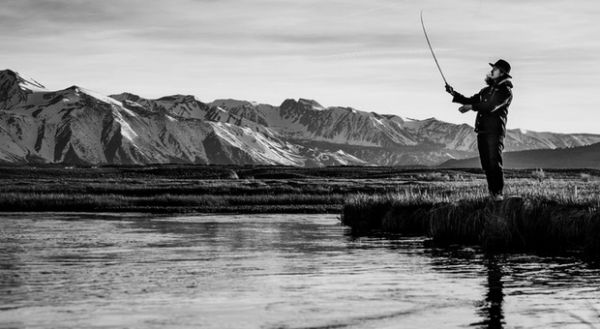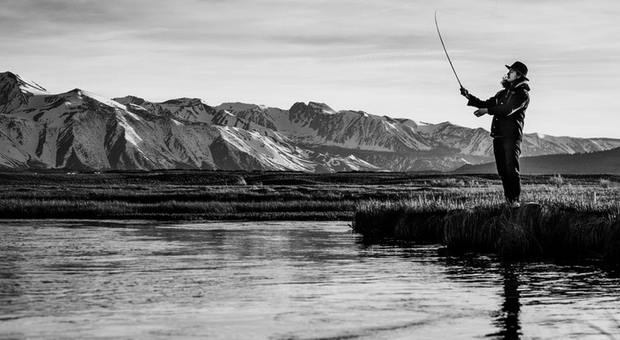How to Keep Yourself Toasty While on A Fishing Trip
By Jackie Edwards
[dropcap]F[/dropcap]or passionate anglers, there is no season when it comes to fishing. You go out in all types of weather whether it is warm, cold, rainy or dry. Keeping yourself warm all throughout the activity is a challenge that many people face especially in winter because the body can experience heat loss in several ways. Without the proper gear and precautions, an activity that is supposed to be pleasant and pleasurable can quickly turn into a nightmare or worse.

Getting wet in the winter is worse than nuisance.
The Cold Outdoors Hasten Convection
Exposure to the cold weather makes the body lose heat very quickly. If you are out fishing and the weather is cold, this speeds up convection making you lose body heat faster. Convection is the process where the cold wind takes the heat out of your body. In effect, it cools you down because it strips the body of the warmth. Roughly 10-15% of body heat is lost through convection (Michigan Medicine).
Falling in the Water Can Cause Hypothermia, Cardiac Arrest, and Injuries
You are not likely to fall in the water while fishing but if the unexpected occurs such as falling overboard or slipping into the river, be prepared to conserve body heat as you lose it 25 times faster in cold water compared to exposure to cold air (Minnesota Sea Grant). Do your best to get out as quickly as possible back in a boat or onshore or hold to a flotation device until help arrives if you are not wearing one. It is vital that you conserve your energy and be prepared mentally and psychologically for such an occurrence.
Cold Nights Fishing Increases Radiation Heat Loss
Radiation heat loss is a real concern if you are going to continue fishing in the night. The time where it is critical is between sunset and sunrise when the heat in the atmosphere brought about by sunlight dissipates. The body is not active when you are fishing. Heat loss occurs and you could easily lose as much as 65% of it (Michigan Medicine).
Evaporation Through Perspiration Causes Heat Loss
Sweating or perspiration keeps your body cool but at the same time, uses up the heat for this altered state to occur. Moisture evaporates from your body and it will be difficult to keep the heat in especially if you are out fishing.
Wear Layers
To avoid unnecessary loss of body heat, it is vital to dress up sensibly when fishing. Wear a base layer to insulate your body and to wick moisture away from your skin. Base layers should be moisture-wicking because as you sweat, it will be difficult to keep yourself warm. After the base layer, wear mid layer clothing to enhance heat insulation. This can be a sweater, cardigan or sweatshirt. Again, the type of fabric for your mid layer clothing matters with synthetics such as polyester or natural wool doing a better job of wicking moisture than cotton.
Outerwear for Protection
A good shell jacket that is water and windproof will do a good job of keeping the wind, water, and the cold out. In addition, you can also don on a bib to help you keep warm. Bibs usually come up to the chest for that additional layer of insulation.
Footwear and Accessories
Insulation matters from head to toe. Keep feet warm and dry by wearing insulated boots while a good pair of gloves will protect your hands. Conserve body heat by covering your head with a beanie hat or head warmer. Use a face mask to protect your skin from the brutal wind and cold. Do carry a spare set of clothes and shoes with you on the boat for emergencies.
Staying warm while fishing is easy if you are well-dressed and prepared for the weather. By taking the necessary precautions, you are assured that you retain body heat and reduce risks of accidents and illnesses.


